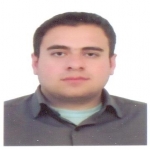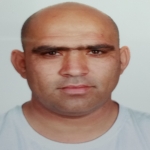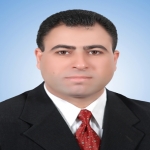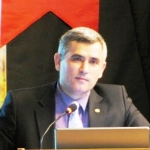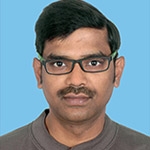EDITORIAL BOARD MEMBERS

Department of Botany
Aligarh Muslim University
Aligarh
BIOGRAPHY:
Dr. Faheem AHMAD is an Assistant Professor of the Department of Botany of Aligarh Muslim University (AMU), Aligarh, India He obtained BSc (Hons.) Botany, MSc (Hons.) Botany and Ph.D. in Botany (Plant Pathology and Nematology) from AMU. He joined Aligarh Muslim University (AMU) as an Assistant Professor in May 2017.
Dr. Faheem AHMAD got an offer from National Sun Yet-Sen University, Taiwan in 2010 to work as Postdoc Fellow (PDF) on funded project to Prof. H.F. Wu by National Science Council of Taiwan. The works were based on microorganism's identification using protein enrichment technique coupled with MALDI-TOF Mass Spectrometry. During the Postdoc tenure, quality of publications was published in international peer-reviewed Journals including Biosensor and Bioelectronics, Analyst, Microchimica Acta, Talanta etc. In 2011, He has visited Ege University, Turkey as Foreign Researcher and during the stay, a grant was provided by TUBITAK Department of Science and Grant Programmes (BIDEB), Tanus Caddesi No. 80, 06100 Kavaklidere/Ankara, Turkey to work on EPN-Bacteria Symbionts and Meloidogyne spp. Parasitism: Biocontrol Approach. Based on his research contribution.
Dr. Faheem AHMAD was again awarded Postdoctoral Fellowship by North-West University, South Africa in October 2011 to conduct research on plant-associated bacteria. In 2013, NRF Free-standing Postdoctoral Fellowship was obtained to work on Application of Plant Growth-Promoting Rhizobacteria (PGPR) as Biocontrol Pesticides and their role in Defense Response in Chickpea. Science & Engineering Research Board (SERB), Department of Science & Technology, India was also awarded Young Scientist project in 2013 with Ref No. SERB/LS-1/2013 on "Tomato disease resistance genes to Meloidogyne spp. and plant defense mechanism"
Later in 2014, He moved to JAPAN to work as Postdoctoral Research Associate with Prof. Nonami on plant single living cell analysis using internal electrode capillary pressure probe electrospray ionization (IEC-PPESI) MS/MS technique. He has also served as Assistant Professor at Applied Biotechnology Department, Sur College of Applied Sciences, Oman.
RESEARCH INTERESTS:
Dr. Faheem AHMAD his current research efforts are focused on the implementation of different scientific strategies to identify plant-associated pathogens including bacteria & plant-parasitic nematodes and to manage these pathogens using interdisciplinary approaches. An accurate profile of the types and numbers of pest nematodes is important for explaining the damage to the current crop, predicting damage to future crops, and selecting appropriate measures to keep nematode pests from reaching damaging levels. The current research effort also seeks to understand how plant-associated microbial communities mediate individual plant health, abiotic stress tolerance, and susceptibility to disease in both natural and agricultural settings.
A second programme emphasis is on bio-analytical tools coupled with MALDI-TOF mass spectrometry for rapid and straightforward detection of plant-associated microbes impacting the yield of economically important crops and utilizing it to diagnose accurate plant pathogen at an early stage of infection and to mitigate disease before reaching damaging levels. My responsibilities also include teaching and academic programs (Master and Undergraduate), including the student’s dissertation guidance.
OTHER EDITORIAL BOARD MEMBER
Department of Agricultural Sciences
University of Naples Federico II
Italy
Sher-e-Bangla Agricultural University
Bangladesh
Annamalai University
India
Department of biology
Sidi Bel Abbes University
Algeria
Faculty of Agriculture
University of Baghdad
Iraq
Department of Agronomy
Kansas State University
United States
The University of Torbat Heydarieh,
Torbat Heydarieh, Khorasan Razavi province,
Iran
Department of Nano biotechnology
Pasteur Institute of Iran
Iran
Fujian Agriculture and Forestry University
China
Division of Food Science & Postharvest Technology
Indian Agricultural Research Institute
India
Faculty of Science
Department of Biotechnology
Beer Bahadur Singh Purvanchal University
India
Faculty of Agriculture
Department of Agricultural Engineering
Kafrelsheikh University
Egypt
Department of Chemistry of Bioactive Nitrogen-Containing Heterocyclic Compounds
Institute of Bioorganic Chemistry and Petrochemistry
Ukraine
Department of Plant Pathology
Agricultural and Biological Research Division
National Research Center
Egypt
BADESUL Development, Agrofomento, Analysis of projects.
Brazil
Department of Plant Biotechnology
Arts, Al-Baha University
Saudi Arabia









